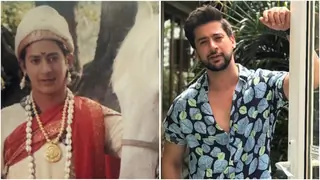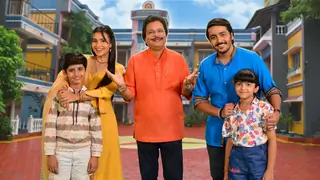Well known flautists, the Sikkil Sisters, Kunjumani and Neela, have been chosen to receive the Sangita Kalanidhi title from The Music Academy this year. They are the first to receive the award as a duo and that too during the platinum jubilee year of the Academy. The sisters also play as a trio and the third person who joins them is Mala Chandrasekhar (daughter of Neela). At their Jeth Nagar residence in R.A. Puram, Madras, the elder of the sisters, Kunjumani spoke at length (in Tamil) to Aruna. S of KutcheriBuzz. K.S. Venkatraman is married to the sisters. He has played a key role in promoting the sisters and feels proud of them. In interviews, he likes to take the lead. He did it with KutcheriBuzz. The sisters have been chosen to receive the Sangita Kalanidhi as a duo during the platinum jubilee year of The Music Academy. How does it feel, Mr. Venkatraman?
Venkatraman: It is a prestigious award. Every award is a recognition for their vidwath, projects the flute and the sisters as a duo. Every award makes them more responsible, to play the flute and to please the public. Kunjumani: We feel very happy. We have been receiving several awards over the years and we feel encouraged everytime. We didn't learn music for awards. Ours was a family steeped in music, so we were initiated into music from a very young age. During family get togethers or any celebrations in our village, we would be asked to play and we grew up with music. Tell us about what Sikkil was like...
Kunjumani: Sikkil is a small town in the Thanjavur district and it was a wonderful place to live. We had our own land, a huge house, cows, pure milk, plenty of water, greenery all around, a big temple, a big tank where we would take bath and we grew up with nature...Generally in the villages people eat well, that is good sumptuous food and we always had fresh vegetables. After we got married, we had to move to Madras and we didn't like it here. We didn't want to come here. We found it very difficult to adjust to the life style here. The weather was different. Even now we go to Sikkil, when we go to Thiruvaiyaru for the Thyagaraja Aradhana. The temple priests and the people there welcome us with so much affection... The main deity there is the 'Singaara Velavar'. It is said that it was here that lord Muruga got his vel(spear) from his mother Shakthi, for the Surasamharam. The whole town celebrates this event even now, on the day before Kandasashti that falls after Deepavali. In those days, there were kutcheris held just outside the temple at the 'Coronation Hall'. The topmost vidwans have performed here right from Semmangudi Srinivasaiyer to GNB and Madurai Mani Iyer. We have also played there as youngsters. But, today we hear that light music concerts are held on this occasion. The temple still follows the kutcheri tradition. Traditional families that preserved music have spread all over the place. In those days in Thanjavur or Thiruvaiyar, every street had the greatest vidwans. The kings encouraged the musicians. These days, the vidwans have moved to places where they find an occupation. And today Madras is the headquarters and most musicians have settled here. Now, we feel happy here. We'll find it difficult to go back to Sikkil. It is with the Singara Velavar's blessings that we're here today. How did you take to flute?
Kunjumani: Our father, Azhiyur Natesa Iyer was a mridangist and he had a good stage experience. Our periappa (paternal uncle) Azhiyur Narayanaswamy Iyer was a musician who could sing and play various instruments like harmonium, flute, violin, veena and once even Nadaswaram. He specialised in flute. As a child I used to watch him play the flute and then take a brass tube and imitate him...I would simply act as if I was playing the instrument and produce the sounds vocally! Once, my father saw me doing this and decided that I could learn from my uncle. Though my uncle felt that I could also play the other instruments, my father insisted that I concentrate on one and perfect it. As a mridangist, he also trained me in the laya aspects. He moulded me. In those days, they would see the jadagam (astrological birth chart) and they found out that I would do well. As a child I could even identify ragas and picked up fast. So what memories do you have of your first concert?
Kunjumani: Once, one of my father's friends had arranged 'Radha Kalyanam' at the Ramar Madam in Nagoor. I went along with my father and on seeing me, my father's friend asked me if I could give a concert on that occasion. So, I played. I was nine then. Slowly the news spread around to the neighbouring villages that a small girl was playing flute and there were invitations for wedding concerts and kutcheris at temples. My second kutcheri was held at the Murugan temple in Ettukudi. And you trained your sister...
Kunjumani: Yes. She learnt from me and gave her first concert when she was seven at the Singara Velavar temple in Sikkil. We gave our first concert together during the Adi kirthigai Utsavam at the Viswanatha Swami temple in Thanjavur. Everybody liked it and from then on we performed as a duo. Basically it is fate that we're playing together. God has given us the opportunity to play together. What about your academics?
Kunjumani: I went till 5th class and after that had tutions at home. For higher classes we had to go to Nagapatnam by bus or train and our parents wouldn't let us go. I got married when I was 16. But these days you need a qualification. You were so young when you got married. Were you allowed to continue to give kutcheris?
Kunjumani: In those days, generally girls from affluent families were not allowed to give kutcheris on stage. Even some of our relatives didn't like us performing. But, my father loved music and said it was divine and encouraged us all the way. As soon as I got married, my in-laws didn't want me to perform on stage. But, I could play on the radio. Later when I went along with my husband to Bombay, when he was posted there, he encouraged me to give a concert there. Slowly he got interested too in music. Do you still practise together?
Kunjumani: Occasionally, if we find time, we practise together or, just on our own. Today, there is no time to do anything. The phone is always ringing. You have to talk to people, if things have to keep going.. Everything is intermingled. You cannot leave one to do the other. How do you plan a kutcheri?
Neela: A kutcheri is like a painting. There is a certain format and accordingly, we choose the songs and string them together. Today, it is the audience that decides what it wants. We know what will go well with a particular audience, so we decide each concert according to the rasikas. The basic idea is that people must understand what we play. We should make the audience forget everything. People today want more songs. In those days, raga alapanas were more important. Whatever we present must be pleasing to the audience. What does music do to you?
Kunjumani: To us, music is 'deivamsam'(divine). Music touches the heart. You cannot touch it with hands and you don't have to see it. It is the highest artform and gives you so much happiness. Music is nothing but 'Nada Upasana'. It is an 'Upasana' with the 'Swara Devatas'. Music also cures. Even if you're sick and ill, you can get cured by listening to sangeetham. It makes you forget everything. Is it still a fact that some of the senior male accompanying artistes do not play for female artistes?
Kunjumani: Yes. They think it is degrading to provide accompaniment for female artistes. About 60 years ago, the social set up was different in India and there were some malpractices which are not prevalent today. But, some of the artistes still stick onto conventional ideas. Among the younger generation there is a very healthy climate. Both the main artistes and the accompanists appreciate each other's talents, be it male or female artistes. Today, the youngsters have the capacity to play well too. And, when you listen to music, you only enjoy the music and there is no need to know who is playing. Your husband seems to be very supportive...
Kunjumani: Initially, he was not very sure if we should take up music so seriously. But later he began to like music and has been very supportive. He worked with the Air Force from 1947 to 1961 and took part in the world war - II, as a Ground Engineer. Later, he worked with Brittania and we came to Madras in 1965. What do you think is the future of carnatic music?
Kunjumani: Today everybody is well read and well qualified. Habits are different. There are so many things to concentrate on... studies, computer, friends...and music is taken up side by side. But, the youngsters are very intelligent and they sing very well too.. In those days, concerts would be for a duration of five hours. We would take one hour just to warm up. These days, one has to give the entire kutcheri effect in one-and-a-half hours. And you have to be intelligent to do that. We have to wait and see what the future has. |






























